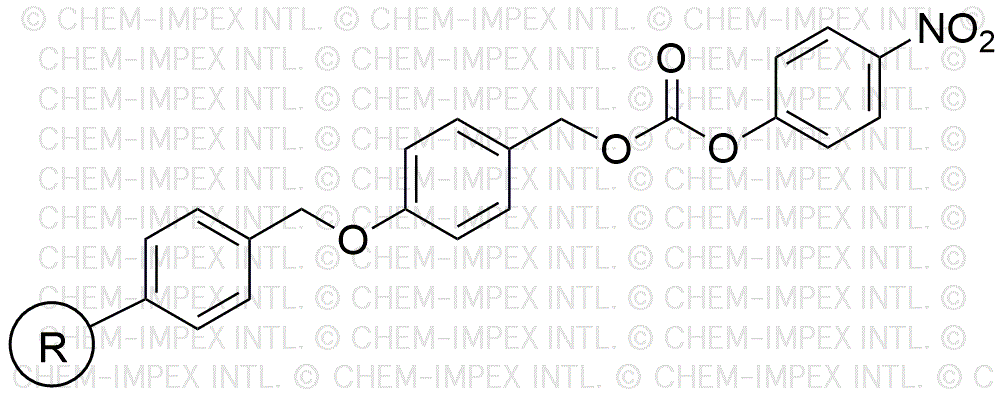4-Nitrophenyl carbonate Wang resin is widely utilized in research focused on:
- Peptide Synthesis: This resin serves as a solid support for the synthesis of peptides, allowing for efficient coupling and deprotection steps in solid-phase peptide synthesis (SPPS).
- Drug Development: It is used in the development of drug candidates, particularly in the modification of bioactive compounds, enhancing their solubility and stability.
- Bioconjugation: The resin facilitates the attachment of biomolecules, such as proteins or nucleic acids, to solid supports, which is crucial for creating targeted drug delivery systems.
- Environmental Applications: It can be employed in the synthesis of environmentally friendly materials, contributing to the development of biodegradable polymers.
- Analytical Chemistry: The resin is useful in the preparation of samples for chromatographic analysis, improving the separation and identification of complex mixtures.
General Information
Properties
Safety and Regulations
Applications
4-Nitrophenyl carbonate Wang resin is widely utilized in research focused on:
- Peptide Synthesis: This resin serves as a solid support for the synthesis of peptides, allowing for efficient coupling and deprotection steps in solid-phase peptide synthesis (SPPS).
- Drug Development: It is used in the development of drug candidates, particularly in the modification of bioactive compounds, enhancing their solubility and stability.
- Bioconjugation: The resin facilitates the attachment of biomolecules, such as proteins or nucleic acids, to solid supports, which is crucial for creating targeted drug delivery systems.
- Environmental Applications: It can be employed in the synthesis of environmentally friendly materials, contributing to the development of biodegradable polymers.
- Analytical Chemistry: The resin is useful in the preparation of samples for chromatographic analysis, improving the separation and identification of complex mixtures.
Documents
Safety Data Sheets (SDS)
The SDS provides comprehensive safety information on handling, storage, and disposal of the product.
Product Specification (PS)
The PS provides a comprehensive breakdown of the product’s properties, including chemical composition, physical state, purity, and storage requirements. It also details acceptable quality ranges and the product's intended applications.
Certificates of Analysis (COA)
Search for Certificates of Analysis (COA) by entering the products Lot Number. Lot and Batch Numbers can be found on a product’s label following the words ‘Lot’ or ‘Batch’.
Numéro de catalogue
Numéro de lot/série
Certificates Of Origin (COO)
This COO confirms the country where the product was manufactured, and also details the materials and components used in it and whether it is derived from natural, synthetic, or other specific sources. This certificate may be required for customs, trade, and regulatory compliance.
Numéro de catalogue
Numéro de lot/série
Safety Data Sheets (SDS)
The SDS provides comprehensive safety information on handling, storage, and disposal of the product.
DownloadProduct Specification (PS)
The PS provides a comprehensive breakdown of the product’s properties, including chemical composition, physical state, purity, and storage requirements. It also details acceptable quality ranges and the product's intended applications.
DownloadCertificates of Analysis (COA)
Search for Certificates of Analysis (COA) by entering the products Lot Number. Lot and Batch Numbers can be found on a product’s label following the words ‘Lot’ or ‘Batch’.
Numéro de catalogue
Numéro de lot/série
Certificates Of Origin (COO)
This COO confirms the country where the product was manufactured, and also details the materials and components used in it and whether it is derived from natural, synthetic, or other specific sources. This certificate may be required for customs, trade, and regulatory compliance.

